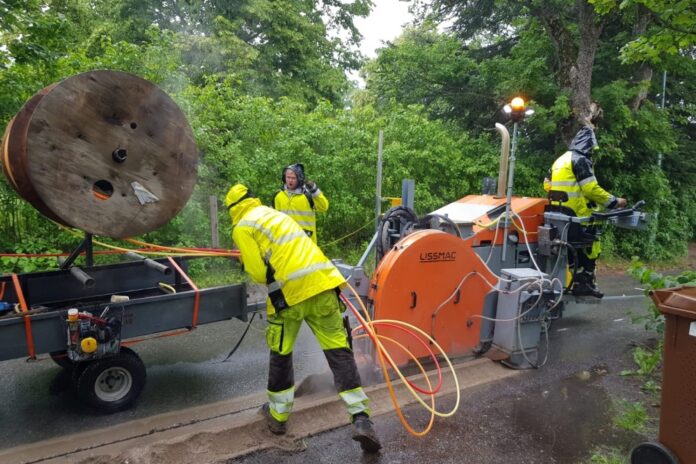“It’s clear that customers love full fibre” – BT
The BT Group could cut its workforce from 130,000 to 75,000 in the next five years, according to the worst case interpretation of an item buried in its full-year results declaration. The bombshell was hidden under a duct of BT’s fibre transformation plans for the rest of this decade, which include more FTTP, more 5G, more fibre customers and few people. The BT Group wants to extending Openreach’s FTTP network from today’s empty promises and convert them into 30 million premises passed, a plan that would include an ambitious take-up rate of up to 55%. The infrastructure behemoth also wants to sign up 8.5 million retail fibre customers, which would be a near five-fold expedition on the 1.8 million customers it has today.
In the UK mobile network market BT-EE plans to extend 5G coverage to more than 98% of the population, up from 68.1% coverage today, and hopes to grow its active 5G connections within that coverage from 8.6 million to up to 14.5 million. BT has set an objective of increasing its net promoter score (NPS) from 22.1 to between 30 and 35, a score that probably signifies nothing to the subscriber in the street but everything to the regulator. The staff cuts have captured the UK media’s attention, following in the wake of jobs loss plans being made by Vodafone. BT CEO Philip Jansen responded to the expected backlash with a statement. “By continuing to build and connect like fury, digitise the way we work and simplify our structure, by the end of the 2020s BT Group will rely on a much smaller workforce and a significantly reduced cost base. New BT Group will be a leaner business with a brighter future,” said Jansen.
These digitising plans didn’t impress the employee’s trade union Prospect which had a counter statement ready. “Prospect [is] deeply concerned by the scale of these [people] cuts,” began a statement from John Ferrett, Prospect National Secretary, who seemed to suggest it was a rather insensitive way to announce job cuts, in a tone more worthy of the fictional nightmare boss David Brent. “Announcing such a huge reduction in this way will be very unsettling for workers who did so much to keep the country connected during the pandemic.” Ferrett urgently demanded a meeting with BT Group management. “Prospect has a partnership agreement with BT which governs how the company and the union manage change in the organisation,” said Ferrett. “We will be ensuring that the partnership agreement is fully adhered to during any consultations with BT over job reductions.”
Though it is doing well operationally, BT doesn’t seem able to convert that into financial growth, said Nick Wood, analyst at Telecoms.com. “In the three months to 31 March, Openreach’s FTTP footprint grew by an impressive 702,000 premises, averaging 54,000 per week.” BT said it had a record quarter for consumer fibre uptake – its subscriber base surged 50% year-on-year. BT’s Jansen said BT is seeing ‘seeing green shoots in B2B’ with a return to revenue growth in the final quarter in Global and the creation of its newly integrated Business unit. Openreach is competing strongly and it’s clear that customers love full fibre. “The Openreach board has reaffirmed its target to reach 25 million premises with FTTP by the end of 2026 and plans to further accelerate take-up on the network,” said Jansen.
However, in its quarterly financial performance, revenue was down 2% to £5.09 billion, Consumer and Enterprise fell 5% and 2% respectively, and these offset growth at Openreach and Global. Adjusted EBITDA did bounce 10% to £2.05 billion, which was due to big increases at Consumer (18%) and Openreach (8%), said Wood.


